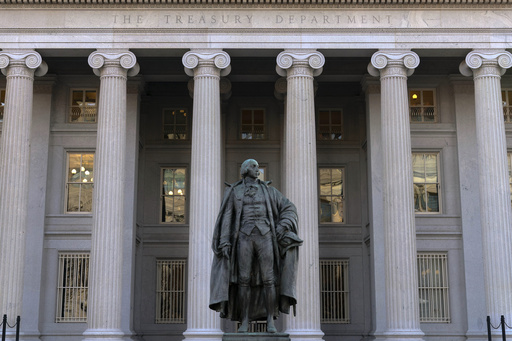WASHINGTON — On Monday, the United States imposed sanctions on a significant number of individuals and oil tankers operating in China, the United Arab Emirates, India, and other locations, alleging their involvement in financing Iran and supporting militant factions that target U.S. interests and its allies.
The U.S. Treasury and State Departments took action against over 30 individuals and vessels, which included senior officials from Iran’s National Iranian Oil Company and the Iranian Oil Terminals Company. These entities were penalized due to their participation in negotiating the sale and transport of Iranian oil. The vessels affected are reportedly engaged in moving crude oil worth hundreds of millions of dollars, as per the Treasury’s findings.
This recent round of sanctions marks the second wave aimed at curbing Iranian oil sales since President Donald Trump issued the National Security Presidential Memorandum 2. This directive aims to “drive Iran’s export of oil to zero” while stating that Iran should never have the capability to develop nuclear weapons.
When the memorandum was signed in February, Trump expressed hope that the measures would not need to be used extensively. “We will see whether or not we can arrange or work out a deal with Iran,” he remarked, emphasizing, “We don’t want to be tough on Iran. We don’t want to be tough on anybody. But they just can’t have a nuclear bomb.” He also mentioned that he had instructed his advisors to take severe actions against Iran in case of any threats to his safety.
Treasury Secretary Scott Bessent stated that the U.S. will employ all available tools to focus on all facets of Iran’s oil supply chain. He warned that anyone engaging in transactions involving Iranian oil subjects themselves to considerable risks of sanctions. During his confirmation hearings, Bessent openly criticized the Biden administration’s sanctions approach, advocating for a more assertive stance against Iranian and Russian entities involved in the oil sector.
According to a report from the U.S. Energy Information Administration, Iran accumulated approximately $253 billion in oil revenue over the terms of both President Joe Biden and Donald Trump from 2018 to 2024.
In a statement, State Department spokeswoman Tammy Bruce emphasized that as long as Iran continues to use its oil revenues to fund attacks on U.S. allies and support terrorism globally, the U.S. will utilize all available means to hold the Iranian regime accountable for its actions.
